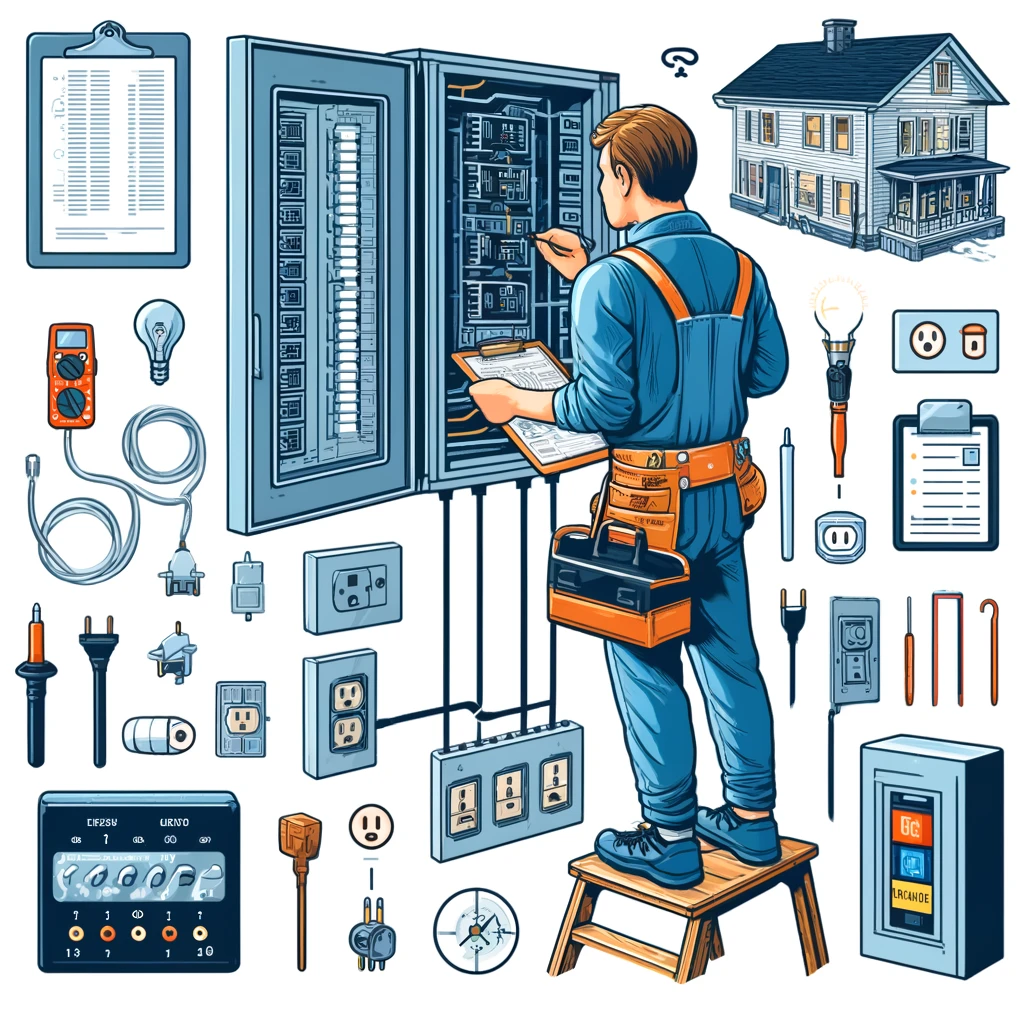The Importance of Regular Electrical Inspections: Ensuring Home Safety

Regular electrical inspections are crucial for ensuring the safety and efficiency of your home’s electrical system. These inspections help identify potential problems before they become serious, ensuring your electrical system is up to code and operating safely. Here’s why and how you should incorporate regular electrical inspections into your home maintenance routine.
1. Safety
- Prevention of Electrical Fires: Many home fires are caused by faulty electrical systems. Inspections can identify risky conditions like outdated wiring, overloaded circuits, or faulty connections before they lead to disasters.
- Shock Hazards: Inspectors can detect and rectify potential shock risks, ensuring all electrical components are grounded and connections are secure.
2. Ensuring Code Compliance
- Up-to-Date Standards: Electrical codes are updated regularly to improve home safety standards. An inspection ensures your home’s electrical system complies with the latest safety regulations.
- Legal Requirements: In some areas, regular electrical inspections may be required, especially during home renovations or before selling a property.
3. System Performance and Efficiency
- Energy Efficiency: Inspections can identify inefficiencies in your electrical system that may be increasing your energy bills, such as old wiring or inefficient appliances.
- System Longevity: Regular maintenance can extend the life of your electrical system by ensuring components are operating correctly and reducing wear and tear.
4. Identification of Hidden Problems
- Early Detection: Issues like hidden wiring problems, degradation of insulation, and overloads aren’t always evident. Professional inspections can uncover these and prevent costly repairs later.
- Peace of Mind: Knowing your electrical system has been professionally inspected and any issues addressed can give you peace of mind about the safety and reliability of your home.
5. What to Expect During an Inspection
- Visual Examination: Inspectors will look at your electrical panel, wiring, outlets, and fixtures for signs of wear or damage.
- Testing: Various components may be tested to ensure they are functioning properly and safely.
- Report and Recommendations: After the inspection, you will receive a report detailing the findings and any recommendations for repairs or upgrades.
6. How Often Should Inspections Be Conducted?
- Frequency: For most homes, an electrical inspection is recommended every 3-5 years. However, older homes or homes with known electrical issues may require more frequent inspections.
Conclusion: Regular electrical inspections are an essential part of home maintenance, enhancing safety, ensuring efficiency, and helping homeowners avoid unexpected electrical problems. Investing in periodic inspections by certified professionals is an investment in your home’s safety and your peace of mind.
